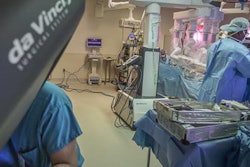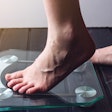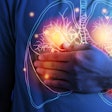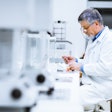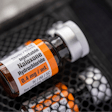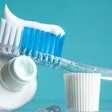
Earlier this year, a U.K. man made global news when he required open-heart surgery after getting an infection from trying to improperly extract a popcorn kernel lodged in his gums. Had he sought professional treatment for the stuck food, a dental hygienist at his dentist's office could have easily extracted the kernel and alerted the man's dentist to examine for any further related issues.
This is an example of the first, and often most vital, step in the chain of medical professionals working together to provide the best possible care for patients. As many dental health professionals can attest, cases like this are more common than most people think and oral infections can easily escalate and create greater health issues.
From the most extreme instances to the very common, these cases underscore the importance of integration across different healthcare practices, including dental and primary care. Integrated care provides dentists and dental assistants with the information and transparency they need to flag irregularities to primary care physicians (PCPs), while simultaneously understanding what treatments, prescriptions, and conditions the patient has that could impact the care regimen.
Using oral health as a primary indicator of whole-body health
Just as dental hygienists are the first line of defense for oral health, the mouth can be a primary indicator of disease and infections affecting the body. Hundreds of diseases can be detected within the mouth as more than 90% of systemic disease symptoms are oral. Dental professionals must be on the lookout for these oral symptoms that often indicate an individual is at risk for a serious medical issue beyond tooth decay or gum disease.
 Katina Spadoni, DDS.
Katina Spadoni, DDS.There are many examples, such as serious health issues like diabetes, oral cancer, and bulimia, that all show signs in the mouth and can be detected by dental professionals. Similarly, when left undetected and untreated for too long, periodontal disease can result in tooth loss over time. Early intervention in these cases gives patients the best chance at controlling health issues and diseases that could create serious or life-threatening complications down the road.
"One of the largest issues facing the patients today is depression. It's common that depression often coexists with other medical conditions," said Beverly Blake, a registered dental hygienist. "In 2017, the Centers for Disease Control and Prevention reported that 12.7% of Americans age 12 and older used antidepressants, and those numbers continue to climb today. Often with depression comes a lack of interest in personal and home care, so having access to a patient's medical history is key to a dental hygienist's ability to accurately care and educate their patients."
Dental hygienists are often the ones with the most in-depth knowledge of patient health because they spend more time observing the patient's teeth during regular cleanings and checkups. As such, hygienists are best positioned to notice and flag potential issues for the dentist to review, ensuring patients are being properly examined.
"As the world changes around us, we find ourselves in this unique position to make a difference in patients' overall health," Blake said. "There are so many medical issues that play a part in oral health. We all know some of the common systemic diseases have been shown to have a link between oral infections. However, age can also be a factor, as many of my older patients now are taking medication for rheumatoid arthritis [RA], and numerous research studies have suggested potential relationships between RA and periodontal disease."
Not only are they the first line of defense, dental hygienists are also a critical point of contact in the education process for the patients, serving as enforcers to make sure patients are acting in accordance with the best practices and ADA-recommended guidelines for their oral health needs. Proper education can save lives and prevent unnecessary medical procedures, like in the case of the man who needed open-heart surgery because of a popcorn kernel.
Coordination creates the best possible care for patients
On its own, dental care is important for identifying potential health concerns and educating patients. However, it needs to be integrated with healthcare to support whole-person health and provide the best possible management of diseases, infections, underlying conditions, and the prescriptions used to treat them. Almost half of the U.S. population is taking prescription medications. However, due to silos in health and dental care, cross-checking this information can be tough. Many people do not remember the exact names and dosages of the medications that their PCPs or other doctors prescribe to them, and, in this case, misremembering either important detail could lead to misdiagnosis.
When dental and health overlap, both dental hygienists and PCPs can coordinate and identify ailments faster. For example, dental hygienists can flag patients experiencing dry mouth, gum disease, and changes in taste to their PCP for diabetes screening, getting them proactive treatment sooner. Because dental hygienists are most familiar with a patient's records and are typically tasked with informing dentists of their background, correct medication information is vital for them to know. By making a patient's health history, including information provided by their PCP, available to their dentists and dental hygienists, everyone has the exact information they need to provide optimal care.
"Oral risk assessments, education, and treatment are essential components to any patient," Blake said. "Time must be allowed for oral hygiene instruction (OHI) with the patient so they know how to carry out the treatment at home. Providing information so dental professionals can identify early stages of disease, determine patient compliance, and tailor oral care recommendations based on patient need is of the utmost importance. Only then can dental professionals accurately influence the patient's oral health status, educate them about oral health concerns, and help them embrace whole-body health as total health."
Dental hygienists are on the front lines of patient care. The unique skillset and knowledge possessed by hygienists enables them to ensure not only the best oral health for their patients but also the best whole-person health. Dental care and healthcare are intrinsically linked. When equipped with the proper patient information, dental hygienists are expertly prepared to detect potential issues and maintain patients' overall health.
In addition to being one of the founding doctors of South Barrington Dental, Katina Spadoni, DDS, is actively involved in the dental insurance arena. Dr. Spadoni is dental director at Anthem. Her knowledge and expertise in dental claims administration for the last 20 years alongside her clinical experience combines the best of both worlds.
The comments and observations expressed herein do not necessarily reflect the opinions of DrBicuspid.com, nor should they be construed as an endorsement or admonishment of any particular idea, vendor, or organization.





